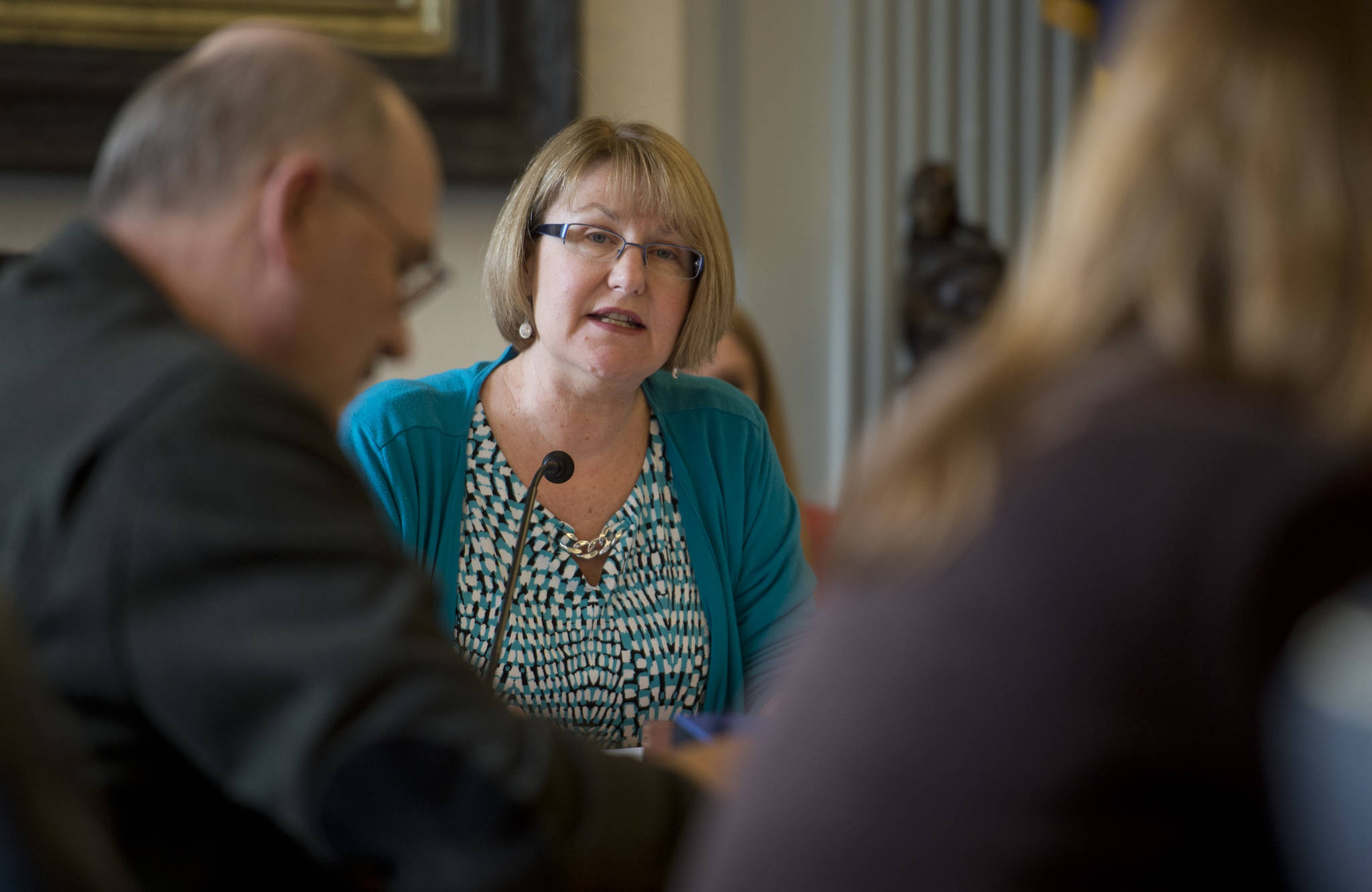With one week remaining in the Legislature’s regular session, a core piece of the state budget is still receiving no public attention.
The rough-draft budgets approved by the House and the Senate take for granted that the Legislature will hike the state’s gasoline tax, but legislation enacting that hike hasn’t been considered for more than two months.
“We all understand that this is the mechanism that this is logical for us to go forward,” said Rep. Paul Seaton, R-Homer and co-chairman of the House Finance Committee. “That hasn’t happened yet, but it doesn’t mean it won’t happen at all.”
At the start of this year’s legislative session, Gov. Bill Walker proposed tripling Alaska’s motor fuel tax by 2018. From 8 cents per gallon of gasoline at the pump today, the tax would rise to 16 cents this year, then reach 24 cents next year. Alaska’s gas tax would go from the lowest in the nation to merely below the national average.
Jet fuel, marine diesel and aviation gas taxes would rise proportionally as well. Heating fuel wouldn’t change.
Money from the tax would be directed toward transportation projects.
Altogether, the Department of Revenue estimates the governor’s original proposal will generate $80 million per year once fully implemented.
When they drafted their spending plans for the next fiscal year, the House and Senate each included revenue from the governor’s proposal, in effect taking the tax increase for granted.
“It’s already in their budget, and it’s in our budget,” Seaton said.
The House and Senate have each approved different versions of the budget that must be reconciled before July 1, the start of the state’s fiscal year.
The fuel tax hike is being considered separately from the House and Senate’s plans to erase Alaska’s $2.7 billion annual deficit. It isn’t listed among the House Majority’s four-part plan to fix the deficit, and the Senate Majority doesn’t include it alongside the Permanent Fund-spending Senate Bill 26 in its plan.
Seaton said the House hasn’t advanced the fuel tax because it wants the Senate to do so first.
“The House has moved two tax bills over to the Senate, and we’ve told them we’re waiting for them to move their bill over to us,” he said.
Staff to members of the Senate Finance Committee said that committee may be willing to advance the bill, and if it moves, it will move very quickly.
The Legislature will hit its constitutional 121-day limit next week, and lawmakers could approve the tax hike before then. If lawmakers don’t finish up on time (or extend for 10 more days, as allowed by the constitution), the governor or lawmakers will have to add the fuel tax to their special session agenda.
If they don’t, they’ll have to cut $40 million more from the budget, money that would have come from the fuel tax in the next year.
“We would have to remove those (funds) from the budget, which would be difficult,” Seaton said.
• Contact reporter James Brooks at james.k.brooks@juneauempire.com or call 419-7732.

